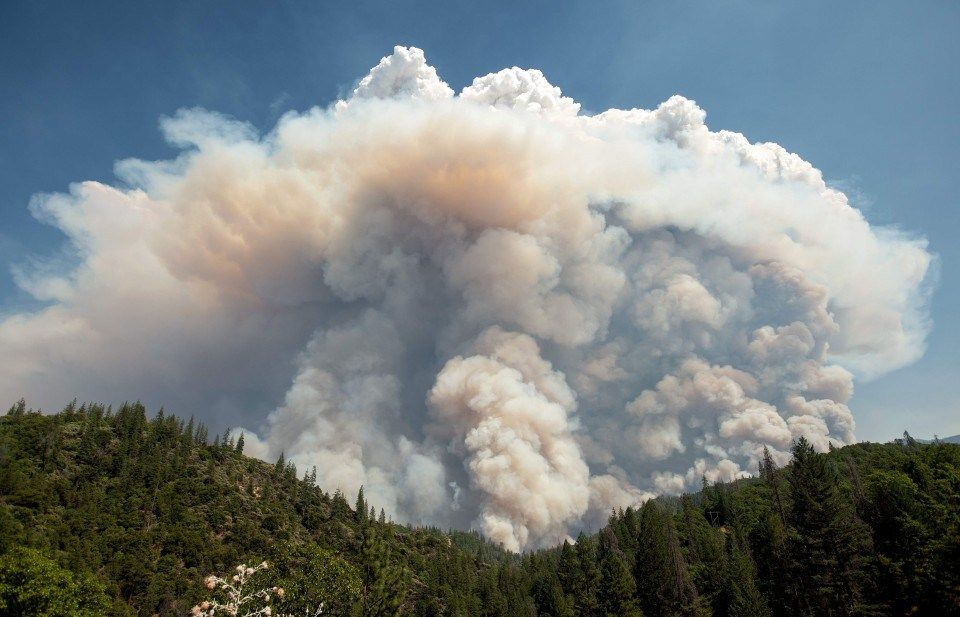You have just read a blog post written by Jason McIntosh.
If you wish, you can visit the rest of the blog, or subscribe to it via RSS. You can also find Jason on Twitter, or send him an email.
Thank you kindly for your time and attention today.

I find myself often encountering a certain phrase in news articles about the climate that unerringly makes me feel a flash of bitterness. It usually reads something like “Scientists say it isn’t too late to avert the worst of climate change’s predicted effects, if the entire developed world acts literally right now.” I don’t know how much irony these stories expect me to apply as I read them. I do know that every headline has an understood lol, as if, and I can’t help but feel slightly trolled.
I also feel a bit like a patient who knows that the test results spell out something very bad, and yet the doctor for some reason won’t give it to me straight — launching into elaborate descriptions of experimental treatments, rather than telling me what I can realistically expect to happen next. I wish more news stories laid out for us the most-likely truth that they have so far contented to prevaricate around: short of a completely surprising miracle, absolutely nothing will prevent climate change from playing out in full, bringing global catastrophe with it. I want to see fewer words focused on ever-dimming hopes and more that turn a brave light instead on this aspect of the future that we and our descendants are all but inexorably bound towards.
While I may have no hope left for avoiding a heat-blighted future, I do reserve some for human civilization’s ability to survive it anyway. Unless the effects wrought by global warming happen with far more terrible suddenness than science seems to currently predict, then I feel hopeful that humanity will indeed change its carbon-outgassing habits — if only as a form a purely mechanical self-correcting behavior, rather than anything consciously preventative. Life will still become profoundly harder for all but the mega-wealthy, all in ways that will seem infuriatingly preventable in hindsight. But the behavioral adaptations forced upon us may end up enough to keep society knit together in a changed world.
Ten years ago I assumed that life would overall, on average continue to get only better for a typical earthling, year by year. I amend this today to thinking that it’ll get better in some ways but precipitously worse in others, at least for me and all my fellow denizens of the broadly middle wealth-band. We will have to do things we never would have assumed, for those in our economic strata: move inland, simplify our diets, give up recreational air travel. Maybe not have that second kid. (Or that first one.) I feel comfortable predicting that all these things will just become too expensive for anyone of non-extraordinary wealth to continue pursuing. And as populations measurable in millions cut back on carbon-expelling activities like gassing up the car or eating burgers regularly — and as the count of carbon-producing humans slows and maybe even reverses its growth — then I’d expect the rise in average global temperature to reach a maximum somewhere below a civilization-killing degree.
This destination will be, in many ways, a harder world. I have no illusions about this. I looked into my hot cup at the coffee shop today, and wondered about the chances that I’d need to kick my addiction someday for simple reasons of personal economics, once the stuff gets too expensive to drink so casually. I expect that coffee plants will likely, and within my lifetime, lose their commodity status over a lack of arable and uncontested land, as well as a lack of people willing to perform farm labor in increasingly dangerous conditions. And I expect this will not effect only coffee plants.
But I hope — and I don’t think naively — that the great big messy project of humanity will carry on, with both the will and the means to keep dragging its history into this uphill future. I predict that we’ll manage to keep relatively cheap internet access, god help us all, and so I continue working on my passions to help bring about a more equitable web, and to support and preserve digital art, because we’re still gonna need both. And, at least as importantly, I will take Roy Scranton’s advice to maintain my personal study of the humanities in the face of looming disaster, making of myself a better capillary for moving culture forward.
If I can keep pursuing this work with neither optimism nor irony, then I hope the news media can adopt a similar stance by helping us document and prepare for the future we’ve locked ourselves into, rather than the wishful and heartbreakingly normal futures no longer in our reach.
Next post: I visited Free Play Bar Arcade in Providence
Previous post: I played Virtue’s Last Reward
To share a response that links to this page from somewhere else on the web, paste its URL here.